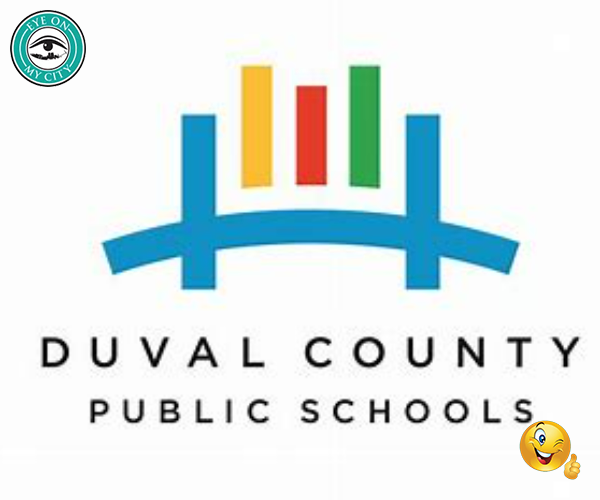School Superintendent Diana Greene deserves credit for setting the media straight on a story they consistently get wrong.
Greene explained in a letter to district employees how the government schools in Jacksonville are doing due diligence and trying to follow state law regarding books in school.
Liberal attempts to fill schools with obscene materials and misinformation have run up against a major roadblock in the form of parental pushback.
Books now are being reviewed to make sure they are age-appropriate for children in school.
Liberal school boards in some parts of the state have rebuffed parental concerns and allowed children access to material so filthy that the boards won’t even allow parents to read aloud at board meetings.
One heroic parent in Hillsborough County who has been fighting the liberal school district there is Julie Gebhards. She was told by a media specialist that one obscene book was needed in the school “based on the needs of her community.” Gebhards asked the media specialist: “Do you have children asking you how to have anal sex? Because that’s a real problem.”
One recent example of media malfeasance occurred when they showed empty bookshelves in schools and ranted about “book burning.”
Any rational person knows that a school – and even a public library – cannot possibly afford to stock its shelves with every book published. Therefore, not choosing a book is not “banning.”
In addition, parents who for some reason want their child to read obscene material not available at school can buy or borrow the book and make it available to the child. The children of responsible parents do not need to be exposed to such material.
Other lies in the media include the claim that a book about baseball hero Hank Aaron was banned.
Another example is a column by a Far-Left writer in a tiny local newspaper linking the reforms to “1984” – a reference to a classic book by George Orwell describing a totalitarian society the liberal writer no doubt would embrace.
In her letter Greene addressed misinformation in the media. Her statement is worth reading in detail:
I am writing today to clarify a great deal of misinformation that has made its way around social media and the news media about the status of library books in Duval County Public Schools. I am going to cover two separate story lines:
• First, I will cover the purchase of almost 1,300 books from Perfection Learning (including almost 180 books from their Essential Voices Collection).
• Following that, I will address the current effort to review all classroom library books, which is now required under state law.
This is a long note, but I hope you will stay with it until the end. Both issues are being misrepresented in the news media and social media, and it is our hope that our stakeholders and local community members can at least build their opinions on facts.
Topic One: Did the district ban more than 170 books purchased from Perfection Learning’s Essential Voices Collection, including books about Roberto Clemente and Hank Aaron?
I don’t believe this is true, but you be the judge.
1. The district purchased almost 1,300 titles in 2021. When we received that order, more than 1,100 titles went directly to the classrooms.
2. The order included almost 180 book titles from the Essential Voices collection, which we purchased to increase diversity of writers, characters, topics, and viewpoints in our classroom libraries.
3. When we received those books, we quickly became aware that the delivery included titles we did not order. We collected those books from schools and held them in district storage until our media specialists and others could review them. (Note: We have two media specialists at the district level, and their primary responsibility is to support school instruction).
4. When we reviewed the books, we sent 105 titles from this diverse collection to classrooms last fall.
5. We sent 47 book titles back to Perfection Learning. Fourteen of these were sent back because we didn’t order them. Others returned were titles that we ordered but upon review, we determined they would not comply with new legislation or were not appropriate for elementary aged children.
6. We held 27 titles as we awaited state guidance to determine the appropriate grade levels and placement (classroom library or media center) for these books.
7. Media specialists received training from the Florida Department of Education in January 2023 after returning from Winter Break.
8. As of February 13, 2023, all 27 of those titles have been reviewed and approved for designated grade levels, including the books about Roberto Clemente and Hank Aaron.
The book review process was instituted to ensure books in our schools are age-appropriate and meet the recent legislation passed by the Florida legislators.
Topic Two: Have you banned all books from classroom libraries and media centers? No, but again, you be the judge.
1. State law now requires that every book in our classroom libraries and school media centers be reviewed by certified media specialists.
2. Since the law passed, our small team of certified media specialists (about 54 across the district) have taken on the task of reviewing more than 1.6 million titles.
3. Based on state training on multiple laws dealing with gender and racial ideology in books, they are looking for three things:
a. Material which could be considered pornographic is not allowed. State trainers reminded our team throughout their presentation that this is punishable as a third-degree felony and that reviewers should “err on the side of caution.”
b. Material which could be considered instruction on sexual orientation and gender identity is expressly forbidden in state law for students in grades K-3.
c. Material that could violate Florida Statute 1006.31(2)(d) and 1003.42(3) which, among other requirements, includes material that might describe a person or people as “inherently racist, sexist, or oppressive, whether consciously or unconsciously, solely by virtue of his or her race or sex.”
(Sidenote on item c. above: Since I arrived in 2018, we have invested more than $1 million in classroom books from diverse authors and about diverse groups of people. Our goal was—and continues to be—to put books in the hands of children in which they can see themselves and learn from a broad array of perspectives. What that now means is that we have thousands of titles that we must review to ensure our teachers do not unintentionally violate Florida Statutes.)
4. We did direct teachers to temporarily reduce their classroom library collections to titles that were previously approved while waiting for media specialists to curate a more expansive list of approved titles. However, at no time should a classroom have been without reading resources. At all times, students should have had access to state approved books, already approved civics literacy books, Benchmark Advance small group books, Reader’s Theatre, and extensive online resources in our curriculum.
5. We did have a small number of principals interpret directions and guidance more intensely, out of an abundance of caution. We have provided additional guidance to those leaders and they have appropriately adjusted their message to teachers. In their defense, the state training also stressed the accountability of the school principal with respect to the books and materials made available to students.
6. We informed principals clearly that media centers should not be closed. However, because we need all certified media specialists to review books, hours of media centers open to students, along with the availability of media specialists to support teachers, has been considerably reduced in some schools.
7. Through this process, we now have almost 6,000 book titles approved for classroom use, including aforementioned books about Roberto Clemente and Hank Aaron. In addition to our 2021 order, we already had multiple titles in classroom libraries and media centers about these historic figures, as well as dozens of books about Martin Luther King Jr., Rosa Parks and other icons of the Civil Rights movement.
8. Another new requirement is creating a searchable, online database of all elementary classroom library books for each of our schools so that parents and the public can see all titles available to students. We also have a process and a committee that will review books if they are challenged by a member of the public. All of this is required by law and adds to the effort and time it will take to comply with the law.
We will continue this intensive process of reviewing books to comply with state laws, and here is why: Our teachers and school leaders should not have to worry about jeopardizing their career because a book may be construed to be in violation of Florida law.
Our main goal is to help children learn to read. There are thousands of books we can use to do that. We will take the time and make the effort so that our students and teachers have access to a diverse, legally compliant set of books. I want everyone to be confident that if a student reads a book and asks a question, the teacher can answer that question without fear of personal or professional consequences.
A substitute teacher who posted misinformation about books in schools on social media has been fired.
Representatives of the people of Florida have written law intended to protect children, and concerned parents have formed organizations to monitor local schools and ensure their children are safe. Cooperation from school officials is expected and welcomed.




